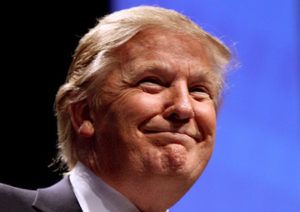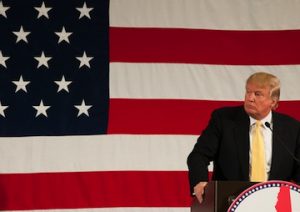The Tragedy of John McCain
John McCain's 2000 campaign for president failed, but it was an unruly and joyous romp. His campaign this time feels quite different: carefully planned, meticulously calculated -- and a tragedy.WASHINGTON — John McCain’s 2000 campaign for president failed, but it was an unruly and joyous romp. His campaign this time feels quite different: carefully planned, meticulously calculated — and a tragedy.
Tragedy, not a word to be invoked lightly, typically involves a morally admirable person who struggles toward a goal and experiences suffering as his own choices collide with forces unleashed by the gods or by circumstance. The distinguished theater critic Walter Kerr once wrote that the tragic man “is free to free himself of obeisance to any power.”
McCain’s political trajectory over the last seven years might best be understood as a conflict between his desire to resist the Republican powers that be and his need to appease those forces lest they block his last chance at the White House.
His efforts at appeasement have muddied his image as a heroic dissident while bringing him little gain. And so he runs behind Rudy Giuliani in the polls, and Mitt Romney in fundraising.
There is another tragic element: McCain suffered mightily during the 2000 presidential primaries at the hands of George W. Bush’s political machine, which smeared the senator on everything from his time as a prisoner of war in Vietnam to the racial identity of his adopted daughter.
Yet McCain is being dragged down now by his loyalty to the very same Bush and his policies in Iraq. Earlier in the war, McCain had been a fierce critic of the president’s strategy and tactics. But those criticisms count for little now. Bush destroyed McCain’s candidacy by design the first time and is smothering him by association now.
McCain had hoped that this week would mark the beginning of his comeback, but it got off to a difficult start. Coverage of his Sunday appearance on “60 Minutes” was dominated by his apology for talking about how safe parts of Baghdad were — even as CBS footage showed that McCain’s stroll through a market was peaceful only because of the formidable military presence around him. Later this week, he’ll give the first in a series of major policy speeches.
But even the best speeches and Op-Ed pieces cannot free McCain from the consequences of his choices. It turns out that no matter what he does to court, soothe and pamper the right, many in its ranks will never abide him. He spoke out too forcefully in 2000 for campaign finance reform and against “the demands of big money special interests.” He condemned the “self-appointed” leaders of conservative groups — a rather influential constituency — and singled out Jerry Falwell and Pat Robertson as “the agents of intolerance.” People in politics have long memories.
In deciding to make up with the president, McCain’s chosen vehicle was Iraq, on which he genuinely views success in the same terms as the administration. He won over a share of Bush fundraisers (who have failed him up to now) and some Bush operatives, but significant parts of the Bush political family went over to Romney, joining at least a few of McCain’s 2000 enthusiasts.
In truth, McCain’s only route to the nomination was not to appease his former enemies but to scare them. He had to be the one person standing between them and the petrifying prospect of a Hillary Clinton or a Barack Obama presidency. Everything right-wingers loathed about the John McCain of 2000 describes what his party most needs now.
His independence from Bush (whom he once called a “Pat Robertson Republican”) would be an asset in light of the president’s manifest failures. His reform enthusiasms stand as the perfect antidote to the corruption of the last Republican Congress. His old straight talk would be such a relief after so much prevarication and fabrication from this White House.
He could have promised to “build a bigger Republican Party … by attracting new people to our cause with an appeal to the patriotism that unites us and the promise of a government that we can be proud of again.” Thus spoke the maverick in 2000 in words almost perfectly suited for his party’s plight in 2007.
But McCain made different choices — on principle about Iraq and on calculation about almost everything else.
In his book “Character Is Destiny,” McCain quotes Viktor Frankl, a Holocaust survivor from Austria, who declares that “everything can be taken from a man but one thing: the last of human freedoms — to choose one’s attitude in any given set of circumstances, to choose one’s own way.”
McCain is an admirable man because he seems to live by those words. That means he will make no excuses for the choices he has made, even if they turn out to be tragic.
E.J. Dionne’s e-mail address is postchat(at symbol)aol.com.
© 2007, Washington Post Writers Group
Your support matters…Independent journalism is under threat and overshadowed by heavily funded mainstream media.
You can help level the playing field. Become a member.
Your tax-deductible contribution keeps us digging beneath the headlines to give you thought-provoking, investigative reporting and analysis that unearths what's really happening- without compromise.
Give today to support our courageous, independent journalists.






You need to be a supporter to comment.
There are currently no responses to this article.
Be the first to respond.